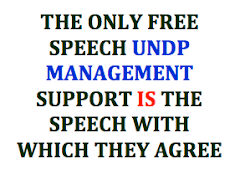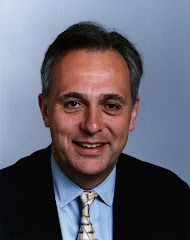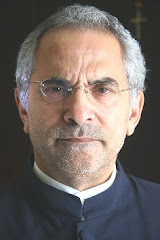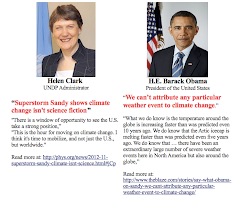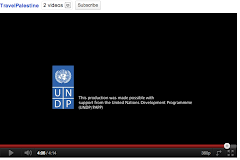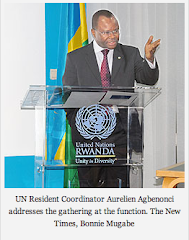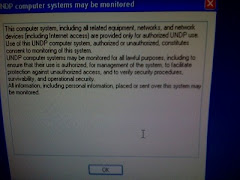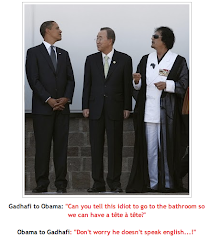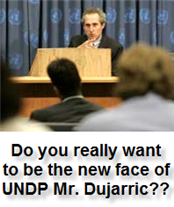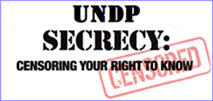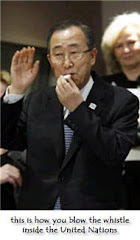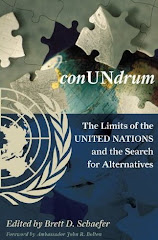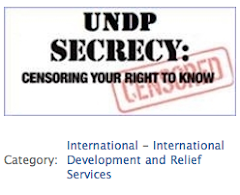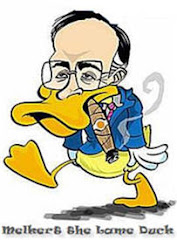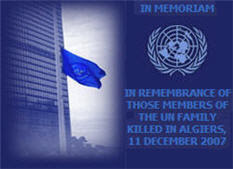By Colum Lynch and Paul Farhi
Washington Post Staff Writers

The concerts will be carried live on MTV, VH-1, the BBC and other broadcasters to 60 countries; radio broadcasts will reach 120 nations, potentially making these the widest heard musical performances in history. The shows will promote NetAid's Web site, which will serve as a kind of clearinghouse for donors and organizations dedicated to relieving hunger and eradicating poverty.
But even before the first chords are struck, the novel charitable alliance is caught up in controversy, deflecting charges of self-interest and self-dealing. Harry Belafonte, the actor and musician who helped organize the event, said he and actor Danny Glover were quitting in disgust. The event, he said, had "been reduced to a trade show" promoting the U.N. bureaucracy and a corporate sponsor, Cisco Systems Inc.
U.N. sources said that in his letter of resignation, Belafonte also complained that proceeds would be funneled back into the U.N. Development Program and Cisco before money reached the world's poor.
"When you deal with the flesh and the blood that makes up the hungry and disenfranchised of this world, you must play in a field of trust," Belafonte said in an interview. "I find that sacred ground. There shouldn't be any cynicism or agendas."
NetAid is the brainchild of a Cisco executive, Diane Merrick, who last year began considering ideas for an attention-getting stunt for her company, based in San Jose, Calif. To promote Cisco, which makes the routing and switching equipment that is the Internet's plumbing, Merrick considered staging an event that would be accessible to millions online.
Among other ideas, she thought about using the Internet to "stream" live video of a fashion show or the worldwide premiere of a Steven Spielberg film. The company particularly wanted to generate attention during Telecom '99, a huge trade show being held this week in Geneva (one of the NetAid concerts will emanate from Geneva, with an audience specially invited by Cisco).
"We were really looking for a way to demonstrate the power of the Internet outside the business realm," Merrick said. "Business has already embraced the Internet. What we wanted to do was give everyone else a glimpse of the future."
Casting about for a more populist vehicle, Cisco eventually contacted music promoter Ken Kragen, who had organized the Hands Across America event in 1986 and the "We Are the World" benefit for famine relief in 1985. By coincidence, Kragen had received a call a week earlier from Belafonte, who wanted Kragen's help in producing an event to mark the United Nations' World Poverty Week, also scheduled at the same time as Telecom '99.
"It was just serendipity," said Kragen. "There was something magical about" the coincidental timing of the U.N. event and the business conference. The company and Belafonte soon began discussion to merge their events.
Belafonte, who was active in the civil rights movement, was asked last year by the United Nations to harness the drawing power of the pop music and film elite in the cause of fighting global poverty. Backed by Cisco's initial commitment of $3 million, he recruited Glover, former South African President Nelson Mandela and U2's Bono, who has advocated that wealthy nations forgive the debts of impoverished countries.
But by August, less than two months before the concerts, Belafonte began privately criticizing the organizing effort. Specifically, he is upset about the makeup of the board overseeing the NetAid foundation, which is dominated by U.N. officials and corporate executives. He is also critical of an arrangement whereby Cisco will be reimbursed about $5 million from NetAid concert-ticket receipts and broadcast rights fees. The company made cash advances to reserve Giants Stadium in New Jersey and Wembley Stadium in London for the shows.
Cisco also has donated $10 million to the NetAid Foundation and contributed roughly $10 million to $12 million more in services, time and equipment. The company says that none of this will be reimbursed.
U.N. officials and NetAid organizers said the reimbursement arrangement is standard practice. They characterized the dispute as driven by oversized egos and a conflict over leadership of the event, not financial impropriety. They said Belafonte lashed out because he could not exercise absolute control over a project that grew dramatically in scope and political importance since its inception.
Organizers also noted that NetAid has continued to attract endorsements and involvement from political figures and celebrities. In September, President Clinton, British Prime Minister Tony Blair and Nelson Mandela were the first to log on to the NetAid Web site (www.netaid.org). The event has also had no trouble attracting performers such as Sheryl Crow, George Michael and Mary J. Blige.
The departures, nevertheless, could prove embarrassing for the United Nations, which has gingerly begun to seek alliances with corporate sponsors to help fill the funding gap caused by shrinking contributions from wealthy governments. NetAid represents the first major collaboration between the United Nations and a private corporation to tackle a specific global problem.
In addition to Cisco, the consulting firm KMPG and the computer company Akamai Technologies have been involved in setting up the Internet site. Several of the aid organizations have links on the NetAid site, which also carries links to the homes pages of Cisco, Akamai and KMPG.
"The point is not to raise money from the concerts; the point is to build a constituency of activists for development" through the Internet, said Mark Malloch Brown, UNDP director.
The NetAid Web site also attempts to dramatize the gulf between industrialized nations and the developing world. It offers implicit and sometimes overt critiques of Western lifestyles. Visitors to the site are likely to learn that "the richest 20 per cent of the world's people eat 11 times as much meat and seven times as much fish as the poorest 20 percent" as well as the following: "In the minute it will take you to read this, 13 children will have died in the world's poorest countries. Each day, the rich West gets $35 million in debt repayments from the poorest nations in Africa. . . . Debt can kill."
The site avoids much discussion of corruption, waste, ethnic warfare, governmental oppression, political strife or cultural practices that impede progress in developing countries.
Cisco says the NetAid Web site will be the most powerful in the world, capable of handling 60 million "hits" every hour or up to 125,000 simultaneous video "streams" of the concert.
Both U.N. Secretary General Kofi Annan and Malloch Brown have met with Belafonte to try to address his concerns.
According to the sponsors, the net proceeds from sales of concert tickets – which cost from $30 to $75 – will go to poverty relief programs in Africa, Kosovo and elsewhere. Additional funds collected from private donations made over the Internet will go to a variety of programs, including hunger-relief projects and refugee resettlement programs, officials said.
Malloch Brown said Belafonte had proposed to distribute the money throughout the U.N. system. Malloch Brown argued in favor of creating a nine-member panel, composed of representatives of the U.N., various charities, corporate sponsors and entertainers.
Belafonte said he was asked last year by the head of the U.N. Food and Agricultural Organization, Jacques Douf, to "please use whatever creative resources [were] at my disposal in the name of ending hunger."
He said he approached an acquaintance, Djibril Diallo, the communications director of the UNDP. But he says UNDP and Cisco Systems quickly seized control of the project.
"They co-opted the ownership of the Web site and the logo," Belafonte said. "I then decided I could not stay with the project and give it the grace of my presence, for whatever that was worth





